P.E.I. milk being tested for avian influenza as precautions ramp up
CBC
Wed, May 29, 2024
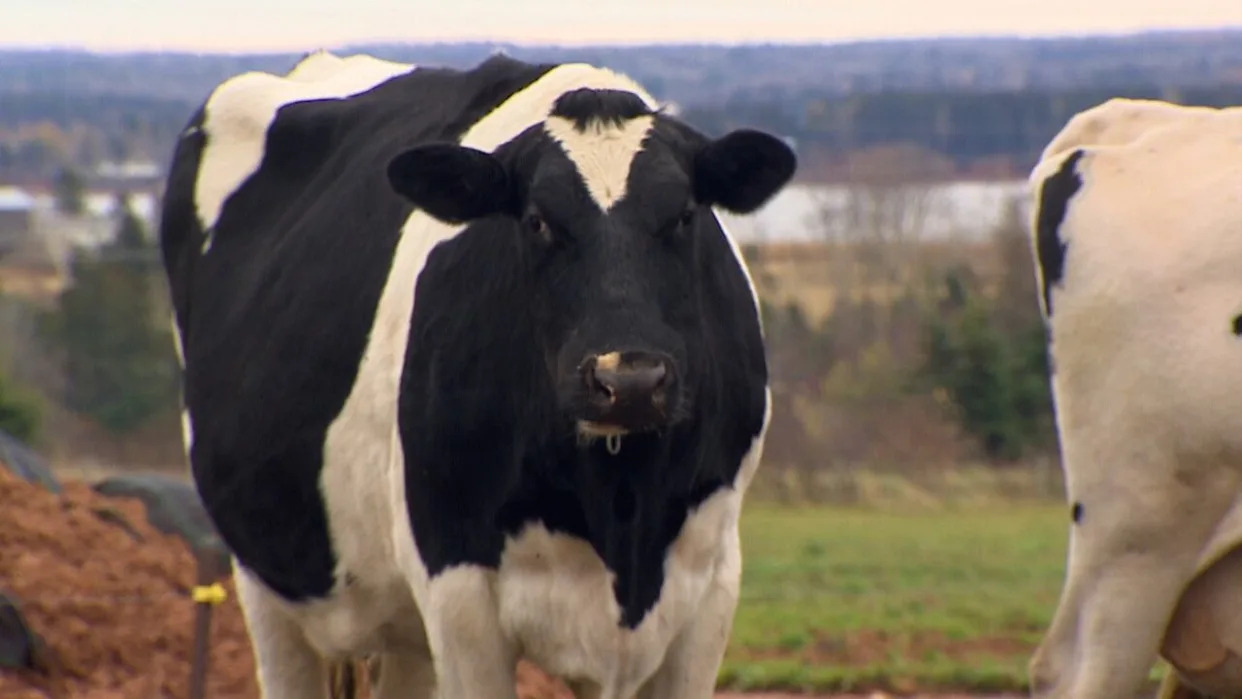
Dairy farmers on P.E.I. are being advised to tighten their bio security and watch for any sick or dead birds in their area as the province ramps up safeguards against avian flu. (CBC - image credit)
P.E.I.'s chief veterinary officer is keeping in close contact with the Island's dairy farmers and veterinarians to make sure they have the latest information on the ongoing avian influenza outbreak in the United States.
The U.S. identified a second human case of bird flu linked to dairy cows last week. The H5N1 virus that's at the centre of the current outbreak is deadly to birds; in cows, it's resulted in decreased milk production, loss of appetite and fever.
The virus has not yet been detected in Canadian dairy cattle, and all tests of commercial milk for fragments of H5N1 have also been negative, according to the Canadian Food Inspection Agency (CFIA).
P.E.I.'s chief veterinary officer Dr. Jill Wood said the CFIA started preventative testing of cattle entering Canada from the U.S. back on April 29.
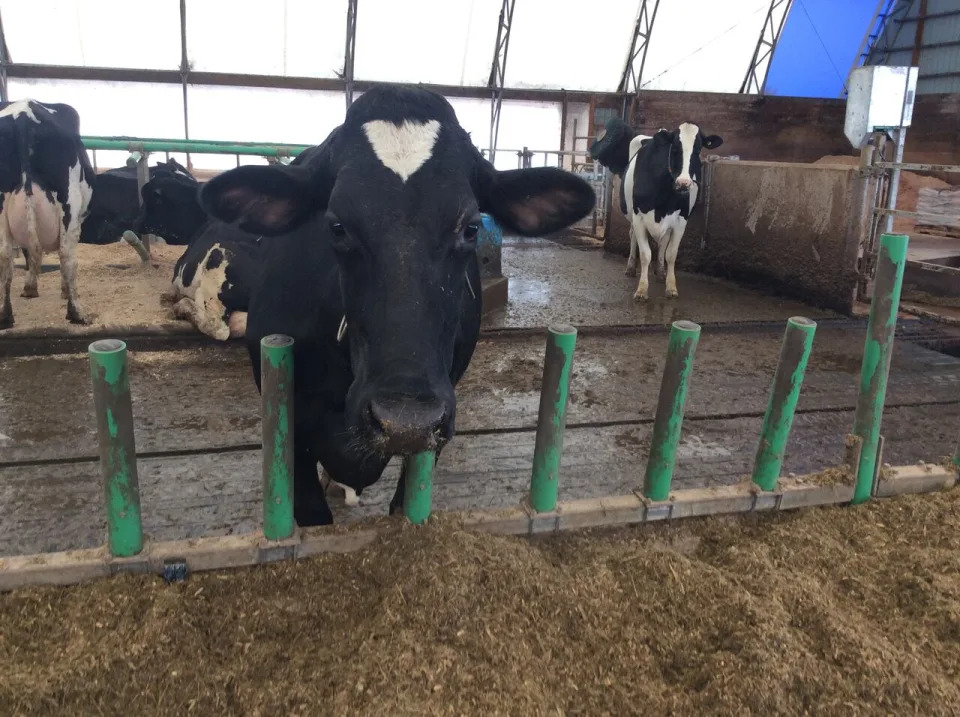
A holstein classifier from Holstein Canada scores the cows from poor to excellent. This cow, named Kerry, was rated excellent.
The H5N1 virus has not yet been detected in Canadian dairy cattle, and all tests of commercial milk for fragments of avian influenza have also been negative, the Canadian Food Inspection Agency says. (Nancy Russell/CBC)
"On that date, they started to require cattle crossing the border from the U.S. into Canada to have a negative avian influenza test before being permitted into the country. And they also started looking at retail milk samples from all across Canada," Wood said.
"They took 303 samples and those all came back negative, so again, good news on that front."
Tightening bio security
Wood said individual dairy farmers are also being advised to tighten their bio security.
"Simple things like asking visitors to to put on boot covers, keeping a visitor log, if they are buying new cattle to isolate those animals for a couple of weeks, milk them last," she said.
"[We're] definitely discouraging any purchases of cattle from the U.S. right now."
Wood said the way the avian flu is spreading on farms south of the border seems to be different from what happened among the bird population.
"If it was being spread entirely by the wild bird population, then that makes it very difficult to prevent," she said. "Birds are migrating and there's nothing we can do to stop them from from flying to Prince Edward Island."
The U.S. outbreak appears to have been spread from farm to farm, she said.
"The original cattle in Texas, we think, got infected by what we call a single spillover event from birds to cattle. And then the subsequent spread from there seems to mostly be because cattle from infected farms moved on to non-infected farms," Wood said.
"We're hoping with the test at the border and with the precautions that our farmers are taking that we can prevent it from showing up in Canada."
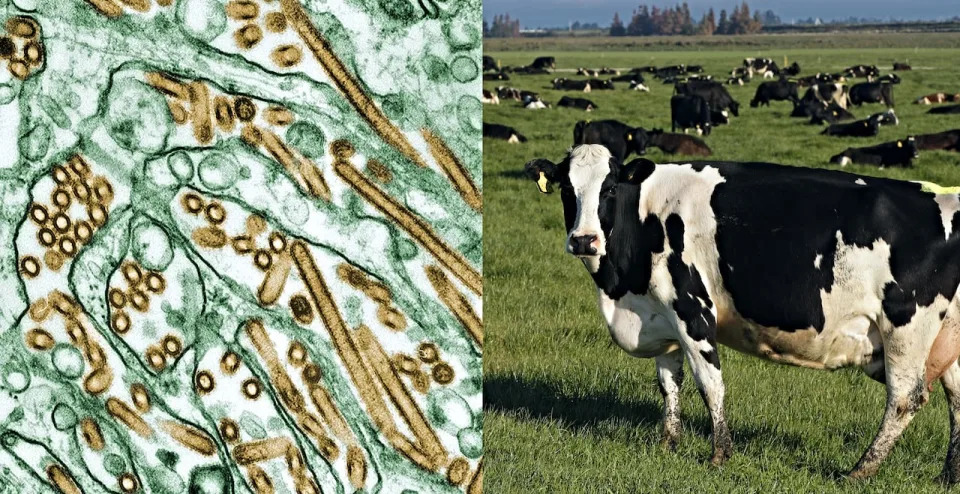
This year marked the first time a dangerous form of bird flu was reported in dairy cows. Two human cases linked to the outbreak also involved only eye infections. Were these curveballs from H5N1 (left)? Some scientists say earlier research warned about all these unusual possibilities.
This year marked the first time a strain of bird flu was reported in dairy cows. (U.S. Centers for Disease Control and Prevention/The Associated Press)
She said there are still questions about how the virus is being transmitted.
"We haven't totally ruled out that that birds could introduce it on another farm," she said.
"So [we're] certainly asking farmers to be aware of that as well, and to report any increased number of dead birds or wildlife on their farms."
The P.E.I. government has an avian influenza page on its website, and the CFIA also provides regular updates.
'We trace every animal from birth'
Gordon MacBeath, a dairy farmer from Marshfield, P.E.I., and chair of the Dairy Farmers of Prince Edward Island, said the dairy industry has protocols in place already that will help monitor the avian influenza situation.

Gordon MacBeath is a dairy farmer from Marshfield, P.E.I. and chairman of the Dairy Farmers of Prince Edward Island.
Gordon MacBeath is a dairy farmer from Marshfield, P.E.I., and chair of the Dairy Farmers of Prince Edward Island. (Tony Davis/CBC)
"There's inspectors on farms on a regular basis, and so producers are used to bio security measures, and they're just asked to enhance some so that veterinarians visiting and suppliers visiting ... respect those bio-security protocols," he said.
"One thing that's unique in Canadian cattle is our traceability. We can trace every animal from birth on and off farm regardless of the location where the animal is. So if there ever was an outbreak, we could always trace that animal back through its history. And I think that's very significant in any disease outbreak."
MacBeath said he is supportive of the CFIA's testing.
"I think it's a positive for the industry," he said. "It reassures producers, it reassures consumers and reassures government that our food supply is safe. That we're on top of any potential introduction of the disease to Canada."
CBC
Wed, May 29, 2024
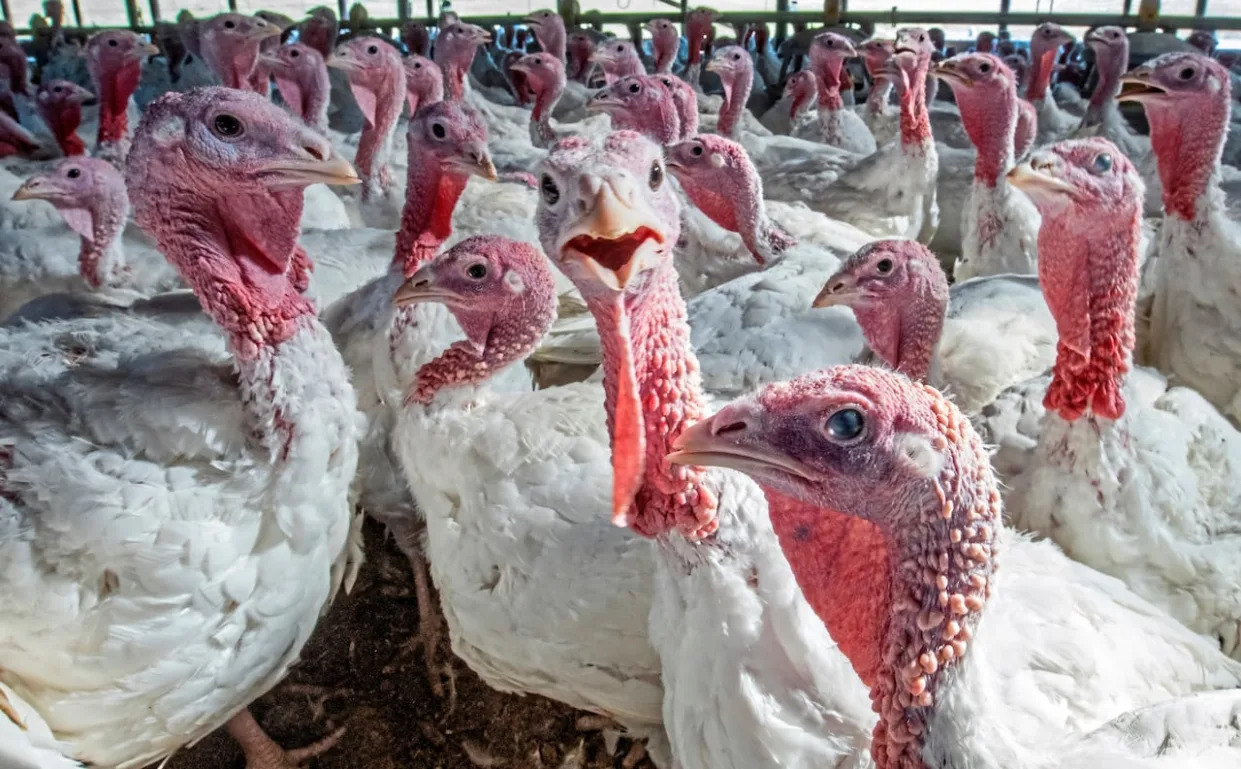
The Ontario Animal Health Network says in April two flocks in southwestern Ontario testes positive for aMPV subtype B. (Andrew Rush/Pittsburgh Post-Gazette via The Associated Press - image credit)
A virus that can wreak havoc on poultry farms and was until now unheard of in the province has appeared in southwestern Ontario, infecting and killing hundreds of turkeys with its arrival
Avian metapneumovirus subtype B (aMPV B), which attacks the respiratory system of birds, and is especially problematic for poultry, resulted in the deaths of 253 turkeys in southwestern Ontario in recent months, according to the World Animal Health Information System.
The turkeys killed by the virus include 166 birds at a farm in Centre Wellington, north of Guelph, and 87 birds at a farm in Huron-Kinloss in Bruce County.
The arrival of the virus in Ontario comes at the same time as concerns continue to mount over a highly contagious form of avian flu, which has made the jump from poultry to cows and even humans.
"For someone in my business, it's very scary because it's a large threat. It's a high risk," said Jorge Cota, the president of Canadian Select Genetics Ltd., a turkey breeder in Putnam, Ont. "We're really tightening things down, and we're on high alert because this can be very devastating."
According to Cota, his job boils down to managing disease risk. That's why bio-security precautions like decontamination of vehicles before they enter his farm property, showers when entering and leaving, and other sanitation processes are the norm for his business and others who supply commercial farmers with their animals.
One of Cota's primary concern lies with how commercial farmers handle news of the outbreak, he said.
Earlier this month, the Feather Board Command Centre (FBCC), which coordinates Ontario's poultry industry in response to disease risks, issued the latest in a number of increasingly urgent warnings to the province's poultry farmers.
It included a recommendation that biosecurity protocols at farms be heightened, and contained a specific nod to increasing concerns for farms in Middlesex, Oxford and Perth counties.
Noting the financial impacts the virus has had on farms in the United States, Cota said those warnings should not be taken lightly.
"Commercial farmers tend not to think at as highly a level as we do about biosecurity, but I'm sure they're aware and nervous. They've heard a lot of stories out of the U.S., and know what could happen to them," he said.
"But, you never know when someone or something is going to bring it onto your farm. Everyone learns eventually, but many people never think it'll happen to them."
LISTEN | Bird virus new kills hundreds of turkeys in southwestern Ontario
In a statement sent to CBC News on Tuesday, farming organization Turkey Farmers of Ontario said it has been aware of the arrival of aMPV in Ontario since late April.
The statement also said it is working with government and industry officials, as well as the FBCC.
"Avian metapneumovirus does not present a food safety risk or human health concern," the statement read.
Moving forward, as someone well-acquainted with disease management, Cota said he expects the arrival of the virus to shake the industry, but isn't sure just how much yet.
"I think it's manageable, but as it is with other diseases, I think we're going to go through some hard times here, and we'll be better off once we go through it," he said.
"I think it's going to affect a lot more people than we think it is, and vigilance is the number one thing farmers need to keep it out of their farms."
Alpacas test positive for H5N1 bird flu for the first time
Brenda Goodman, CNN
Tue, May 28, 2024
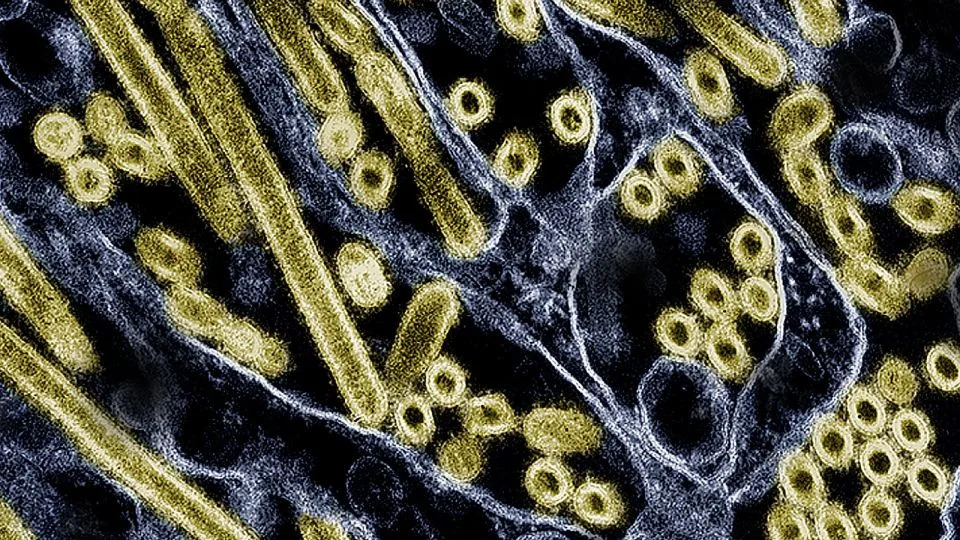
Highly pathogenic avian influenza, sometimes called bird flu, has been confirmed in alpacas for the first time, according to the US Department of Agriculture’s National Veterinary Services Laboratories.
The animals that tested positive were on a farm in Idaho where poultry had tested positive for the virus and were culled in May. The alpacas tested positive May 16, the USDA said in a news release.
The USDA noted that the finding of other infected animals on the same farm as the infected birds wasn’t necessarily a surprise.
The gene sequence of viruses isolated from the alpacas shows that it is closely related to the H5N1 viruses that are currently circulating in dairy cattle.
There are more than 264,000 alpacas registered in the US, according to the Alpaca Owners Association.
Scientists have closely watched the H5N1 virus for roughly two decades. For most of that time, it has primarily affected birds. In the past two years, however, the virus has been infecting a wider variety of wild and farmed mammals, raising concern that it could be moving closer to becoming a pathogen that can transmit easily between people.
Human cases have been reported sporadically around the globe over the years, including three in the US, but no person-to-person transmission has been reported in the ongoing US cattle outbreak.
H5N1 bird flu found in alpacas for first time
Miranda Nazzaro
Wed, May 29, 2024

Bird flu has been found in alpacas for the first time, marking the latest spread of the current H5N1 bird flu virus, the U.S. Department of Agriculture (USDA) announced Tuesday.
The infected alpacas were at a farm in Idaho, where the avian influenza virus was detected in poultry that has since been culled, the USDA’s National Veterinary Services Laboratories said in a statement.
The alpacas tested positive for the virus May 16, and the USDA noted its detection was not unexpected given the “co-mingling of multiple livestock species.”
The H5N1 bird flu is widespread in wild birds around the world, prompting outbreaks in poultry and U.S. dairy cows across the nation this spring. The Centers for Disease Control and Prevention (CDC) said the current public health risk is still “low,” though it is monitoring the situation.
Since 2022, there have three human cases related to bird and dairy exposure in the U.S. The first was in Colorado in 2022, followed by one in Texas last month and one in Michigan last week.
In the most recent case in Michigan, the bird flu was detected in a farmworker who had mild symptoms and has since recovered, according to health officials.
Bird flu was first detected in dairy cows in March, though data for viral samples show it was circulating in cattle at least four months prior and prompted a drop in milk production.
The CDC has confirmed outbreaks in 67 herds in nine states, and as of Tuesday, the virus has been detected in more than 9,300 wild birds across 50 states. More than 92 million poultry in 48 states have also been impacted, the CDC noted.
Humans are urged to avoid direct contact with wild birds and observe them only from a distance and to not eat or drink raw milk or products made with raw milk, per the CDC.
Study: Development of a vaccine will best protect humans from bird flu
Dennis Thompson,
HealthDay News
Wed, May 29, 2024
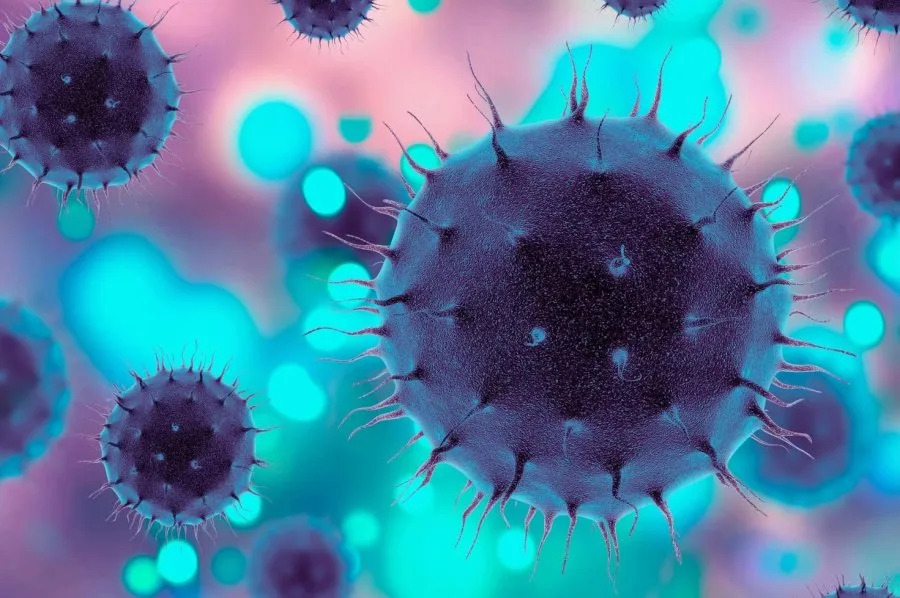
Vaccines remain humanity's best defense against the threat posed by the H5N1 and other strains of bird flu, according to the research published in the journal Human Vaccines & Immunotherapeutics. Photo by Adobe Stock/HealthDay News
Humanity's best protection against bird flu will be the development of effective vaccines, a new study says.
The H5N1 avian flu has been raging through cattle and poultry in the United States, increasing fears that the virus will make the leap into humans and potentially cause another pandemic.
Only two people to date are known to have contracted the virus linked to the current outbreak. Both patients were U.S. farm workers, and luckily they only suffered eye symptoms and made a full recovery with treatment, researchers said.
In the first human case, researchers found the strain had mutated to be better at infecting the cells of mammals.
The concern is that if H5N1 continues to spread in U.S. farms, it has the potential to mutate into a form that will easily spread among humans, researchers said.
Vaccines remain humanity's best defense against the threat posed by the H5N1 and other strains of bird flu, according to the research published in the journal Human Vaccines & Immunotherapeutics.
"The H5N1, H7N9, and H9N2 subtypes of avian influenza virus pose a dual threat, not only causing significant economic losses to the global poultry industry but also presenting a pressing public health concern due to documented spillover events and human cases," said lead researcher Dr. Flavio Cargnin Faccin, a doctoral student with the University of Georgia.
"This deep delve into the landscape of avian influenza vaccines for humans shows vaccination remains the primary defense against the spread of these viruses," Faccin said in a journal news release.
The researchers analyzed a number of different vaccine types -- inactivated vaccines, live attenuated flu vaccines and mRNA vaccines -- and determined they all show promise in protecting animals and people from the avian flu.
Overall, the team suggests "exploring and employing a diverse range of vaccine platforms "will be "crucial for enhancing pandemic preparedness and mitigating the threat of avian influenza viruses."
Work along those lines already is proceeding in mRNA vaccines.
A study published last week reported that an experimental mRNA vaccine against the H5N1 avian flu was effective in preventing serious illness and death in lab mice and ferrets.
The lab animals maintained high levels of antibodies a year after infection, and vaccinated animals infected with H5N1 cleared the virus quicker and suffered fewer symptoms than unvaccinated animals, researchers reported in the journal Nature Communications.
More information
The U.S. Centers for Disease Control and Prevention has more about the bird flu.
Copyright © 2024 HealthDay. All rights reserved.

Wed, May 29, 2024

Vaccines remain humanity's best defense against the threat posed by the H5N1 and other strains of bird flu, according to the research published in the journal Human Vaccines & Immunotherapeutics. Photo by Adobe Stock/HealthDay News
Humanity's best protection against bird flu will be the development of effective vaccines, a new study says.
The H5N1 avian flu has been raging through cattle and poultry in the United States, increasing fears that the virus will make the leap into humans and potentially cause another pandemic.
Only two people to date are known to have contracted the virus linked to the current outbreak. Both patients were U.S. farm workers, and luckily they only suffered eye symptoms and made a full recovery with treatment, researchers said.
In the first human case, researchers found the strain had mutated to be better at infecting the cells of mammals.
The concern is that if H5N1 continues to spread in U.S. farms, it has the potential to mutate into a form that will easily spread among humans, researchers said.
Vaccines remain humanity's best defense against the threat posed by the H5N1 and other strains of bird flu, according to the research published in the journal Human Vaccines & Immunotherapeutics.
"The H5N1, H7N9, and H9N2 subtypes of avian influenza virus pose a dual threat, not only causing significant economic losses to the global poultry industry but also presenting a pressing public health concern due to documented spillover events and human cases," said lead researcher Dr. Flavio Cargnin Faccin, a doctoral student with the University of Georgia.
"This deep delve into the landscape of avian influenza vaccines for humans shows vaccination remains the primary defense against the spread of these viruses," Faccin said in a journal news release.
The researchers analyzed a number of different vaccine types -- inactivated vaccines, live attenuated flu vaccines and mRNA vaccines -- and determined they all show promise in protecting animals and people from the avian flu.
Overall, the team suggests "exploring and employing a diverse range of vaccine platforms "will be "crucial for enhancing pandemic preparedness and mitigating the threat of avian influenza viruses."
Work along those lines already is proceeding in mRNA vaccines.
A study published last week reported that an experimental mRNA vaccine against the H5N1 avian flu was effective in preventing serious illness and death in lab mice and ferrets.
The lab animals maintained high levels of antibodies a year after infection, and vaccinated animals infected with H5N1 cleared the virus quicker and suffered fewer symptoms than unvaccinated animals, researchers reported in the journal Nature Communications.
More information
The U.S. Centers for Disease Control and Prevention has more about the bird flu.
Copyright © 2024 HealthDay. All rights reserved.

No comments:
Post a Comment